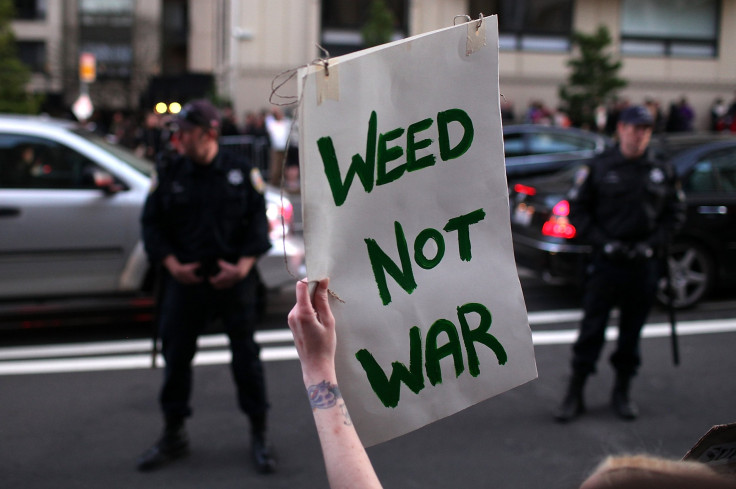Marijuana Legalization: DEA Refuses To Reclassify Weed, But Loosens Restrictions On Research

Marijuana will remain illegal under U.S. federal law, the Drug Enforcement Administration (DEA) announced Thursday, arguing that the drug’s therapeutic value has not been proven scientifically. This means marijuana would remain classified as a Schedule 1 drug — a category that includes drugs such as heroin and ecstasy that have “a high potential for abuse.”
“Marijuana remains a schedule I controlled substance because it does not meet the criteria for currently accepted medical use in treatment in the United States, there is a lack of accepted safety for its use under medical supervision, and it has a high potential for abuse,” the DEA said in its response to petitioners who had sought a reclassification of the drug. “The DEA and the FDA continue to believe that scientifically valid and well-controlled clinical trials conducted under investigational new drug applications are the most appropriate way to conduct research on the medicinal uses of marijuana.”
The DEA’s decision puts the federal government at odds with 25 U.S. states and the District of Columbia, which currently allow the use of marijuana for medical purposes. Colorado, Alaska, Washington, Oregon and the District of Columbia have even legalized its recreational use.
“They [the DEA] are placing researchers in a Catch 22, by saying ‘We are not lifting this research barrier because there’s not enough evidence.’ [But] we can’t do research because of this barrier,” Michael Collins, the deputy director of national affairs at the New York-based nonprofit Drug Policy Alliance, told the New York Times.
However, the DEA did, in a separate proposal also issued Thursday, announce a policy change that may increase the amount of research conducted on marijuana. Researchers, universities and drug companies can now buy marijuana from growers besides the University of Mississippi — which is currently the only entity authorized to produce marijuana to supply researchers in the country.
“This change illustrates DEA’s commitment to working together with the FDA and NIDA [National Institute on Drug Abuse] to facilitate research concerning marijuana and its components,” the agency said in a statement.
© Copyright IBTimes 2025. All rights reserved.






















